Ever sit down for dinner and regret it an hour later, feeling stuffed and groggy? You’re not alone. Going light at dinner just makes sense—sleep comes easier, digestion runs smoother, and you wake up less bloated. Nobody likes rolling into bed with a brick in their belly.
If you’re stuck on what “light” even means when you’re hungry, don’t worry. Think meals that fill you up with nutrition, not heavy sauces and heavy carbs. Stuff like grilled chicken, a hearty veggie salad, or a simple stir fry with just enough protein can hit the spot without hitting you like a truck.
The trick is using fresh, simple stuff you probably already have. Eggs, leafy greens, tomatoes, and even some quick-cooking fish like salmon or cod turn into dinner without much fuss. Toss in store-bought rotisserie chicken for the ultimate lazy upgrade. Cooking shouldn’t take longer than it takes to watch an episode of your favorite show.
- Why Go Light for Dinner?
- Go-To Ingredients for a Light Meal
- Quick Light Dinner Ideas
- Tips for Eating Light (Without Feeling Hungry)
Why Go Light for Dinner?
Eating a heavy meal late in the day can mess with your sleep, leave you feeling bloated, or even cause weird dreams. Your body slows down at night, so that giant plate of pasta or greasy takeout takes longer to digest and just kind of sits there—not fun when you’re trying to get comfortable in bed.
Going for a light dinner helps your body wind down. When you swap out creamy sauces, fried foods, and big servings of bread for lighter options, you’re less likely to wake up with heartburn or regret. Science backs this up: a study out of the University of Pennsylvania showed people who ate lighter dinners had better sleep quality and lower morning blood sugar spikes.
Here’s what you might notice when you keep it easy at dinner time:
- Better, deeper sleep (no tossing and turning because your stomach’s working overtime)
- Less chance of late-night snack cravings since your body isn’t overloaded
- More energy in the morning—nobody wants to start the day groggy
- Less bloating and discomfort in the evening
Check out the difference light versus heavy dinners can make:
| Meal Type | Average Calories | Hours to Digest | Sleep Impact |
|---|---|---|---|
| Heavy (pizza, burgers) | 800-1200 | 4+ | More restless, poor sleep |
| Light (grilled fish, salad) | 350-500 | 2-3 | Better, deeper sleep |
If you’ve got a busy evening ahead or just want to avoid that "food coma" feeling, keeping dinner light is a smart choice. It’s not about starving yourself—just picking meals that give you enough energy without the crash.
Go-To Ingredients for a Light Meal
The right ingredients make all the difference when it comes to keeping light dinner ideas both tasty and filling. Fresh and simple is the way to go. Here’s what works best:
- Leafy Greens: Spinach, arugula, and romaine are packed with vitamins but have hardly any calories. A huge bowl fills you up without a lot of bulk.
- Lean Proteins: Skinless chicken breast, fish, tofu, eggs, or cottage cheese all give you protein minus the grease. Your stomach won’t feel heavy, and you’ll stay full longer.
- Colorful Veggies: Bell peppers, tomatoes, cucumbers, and zucchini are loaded with fiber and water—two things that help you feel satisfied with less food. Try roasting or grilling them for extra flavor.
- Whole Grains: Quinoa, brown rice, or whole-wheat pita have more nutrients than white rice or bread and keep blood sugar stable. Just keep portions modest.
- Healthy Fats: Avocado, olive oil, or a sprinkle of nuts add flavor and help your body absorb nutrients, but a little goes a long way.
- Herbs & Citrus: Fresh basil, dill, lemon juice, or lime keep things zingy so you don’t need tons of salty or fatty sauces.
You don’t need all these in every meal, but using a few is a solid move. The trick is to mix them up, so you never get bored eating the same thing every night.
| Ingredient | Calories (per 100g) | Notable Benefits |
|---|---|---|
| Spinach | 23 | High in iron, vitamin K |
| Chicken breast | 165 | Lean protein, low fat |
| Cucumber | 16 | Hydrating, vitamin C |
| Quinoa | 120 | Complete protein, fiber |
| Avocado | 160 | Healthy fats, potassium |
When you’re shopping or staring at the fridge, just remember: build your plate around greens, lean protein, fresh veggies, some healthy fat, and a bit of grain if you want it. You’ll get something satisfying but still light enough so you don’t crash after dinner.
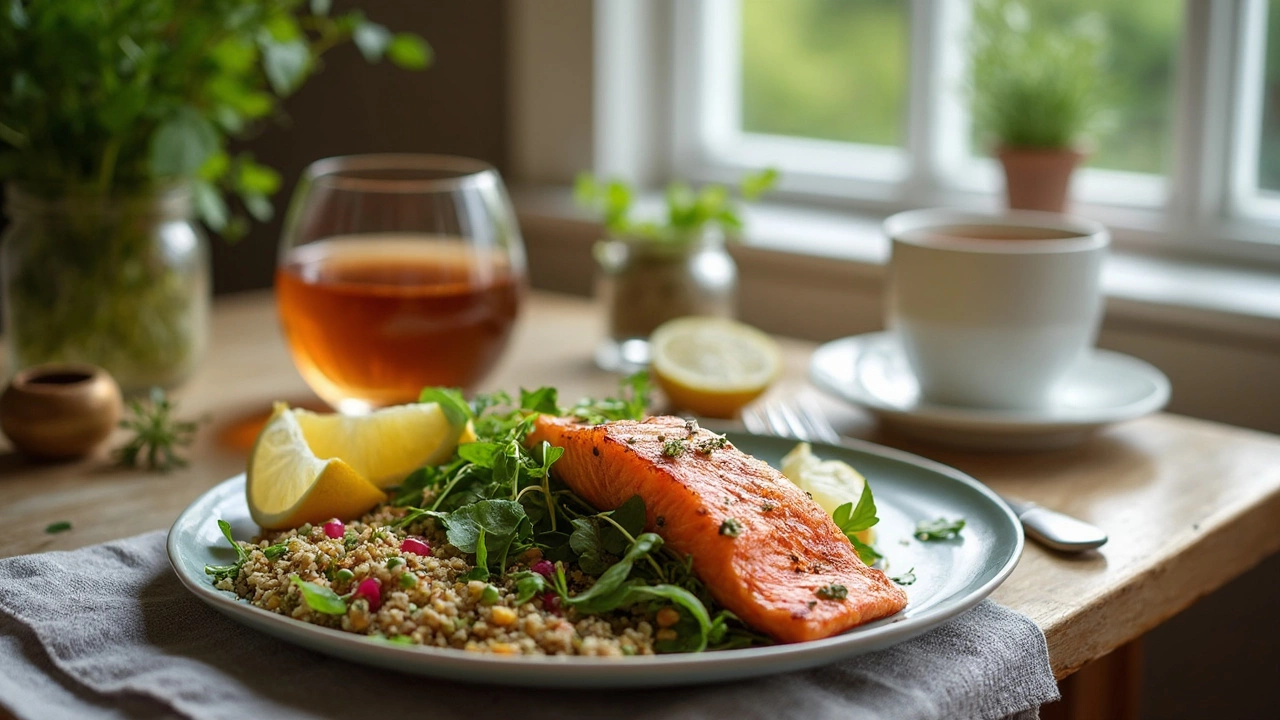
Quick Light Dinner Ideas
When your stomach wants something easy but your brain says "keep it light," these meals are life savers. You don’t have to be a chef. Just keep things simple and let good ingredients do the work.
- Light dinner bowls: Grab some leafy greens (spinach or arugula work great), add protein like rotisserie chicken, chickpeas, or hard-boiled eggs, top with chopped veggies, then drizzle with olive oil and lemon. Ten minutes, tops.
- Veggie stir fry: Toss broccoli, snap peas, sliced peppers, and tofu or shrimp in a hot pan. Add a splash of low-sodium soy sauce at the end for flavor. Serve over cauliflower rice if you want a little extra bulk without the heavy carbs.
- Egg-based dinners: Scramble eggs with spinach, cherry tomatoes, and feta on whole-wheat toast. Eggs make weeknight meals quick, healthy, and totally satisfying.
- Grilled fish: Salmon or cod cook in under 10 minutes. Squeeze on some lemon, throw together a cucumber and tomato salad on the side, and you’ve got dinner without the wait.
- Soup and salad combo: Tomato or miso soup with a side salad is warm, filling, and incredibly easy. You can use boxed soups—nobody’s judging.
Registered dietitian Melissa Joy Dobbins says,
"A light dinner isn’t about eating less—it’s about choosing foods that nourish you and still leave room for good sleep and better mornings."
The key? Skip the heavy creams, piles of cheese, and big servings of bread. If you’re looking for something to eat for dinner that checks the 'light' box, these ideas keep you full but don’t drag you down. Plus, cleanup is minimal, which no one ever complains about.
Tips for Eating Light (Without Feeling Hungry)
If you’re nervous about trying a light dinner because you think you’ll end up rummaging for snacks an hour later, here’s what actually works in real life. You don’t have to starve or just eat lettuce. You just need to eat smarter.
- Pack in protein. Chicken, fish, eggs, or tofu will actually keep you full way longer than just bread or plain greens. Your body uses more energy to digest protein, so you’ll burn a few extra calories too.
- Include fiber. Beans, chickpeas, lentils, broccoli, and berries help slow digestion and beat hunger. Toss them into salads or soups and you’ll notice the difference.
- Go for volume with veggies. Leafy greens, cucumber, zucchini, and peppers are mostly water, which fills you up while barely adding calories. You don’t have to hold back—pile them up.
- Don’t fear healthy fats. Avocado, olive oil, nuts, and seeds make a salad or bowl actually satisfying. Just a spoonful can take a meal from sad to super filling.
- Watch for hidden sugar and salt. Processed dressings or sauces can trick your body into thinking it needs more food. Make your own simple vinaigrette or use a big squeeze of lemon.
- Stay hydrated. Sometimes feeling hungry is just thirst in disguise. Drink a glass of water with dinner and before you go reaching for seconds.
Ever wonder just how much more satisfying a balanced plate is? Here’s a quick look at how filling different light meals can be, using the Satiety Index (how full a food keeps you compared to white bread, which scores 100):
| Food | Satiety Index | Notes |
|---|---|---|
| Boiled Potatoes | 323 | Highly filling, keeps hunger away |
| Fish | 225 | Leaner options (like cod) score higher |
| Oats | 209 | Great for fiber and slow energy |
| Beans/Lentils | 133 | Loads of fiber plus protein |
| Fruit | 202 | Low calorie, hydrating, satisfying |
If you keep these tricks up your sleeve, eating light starts to feel good, not punishing. You won’t have to sneak snacks later—your plate will actually keep you full till breakfast.
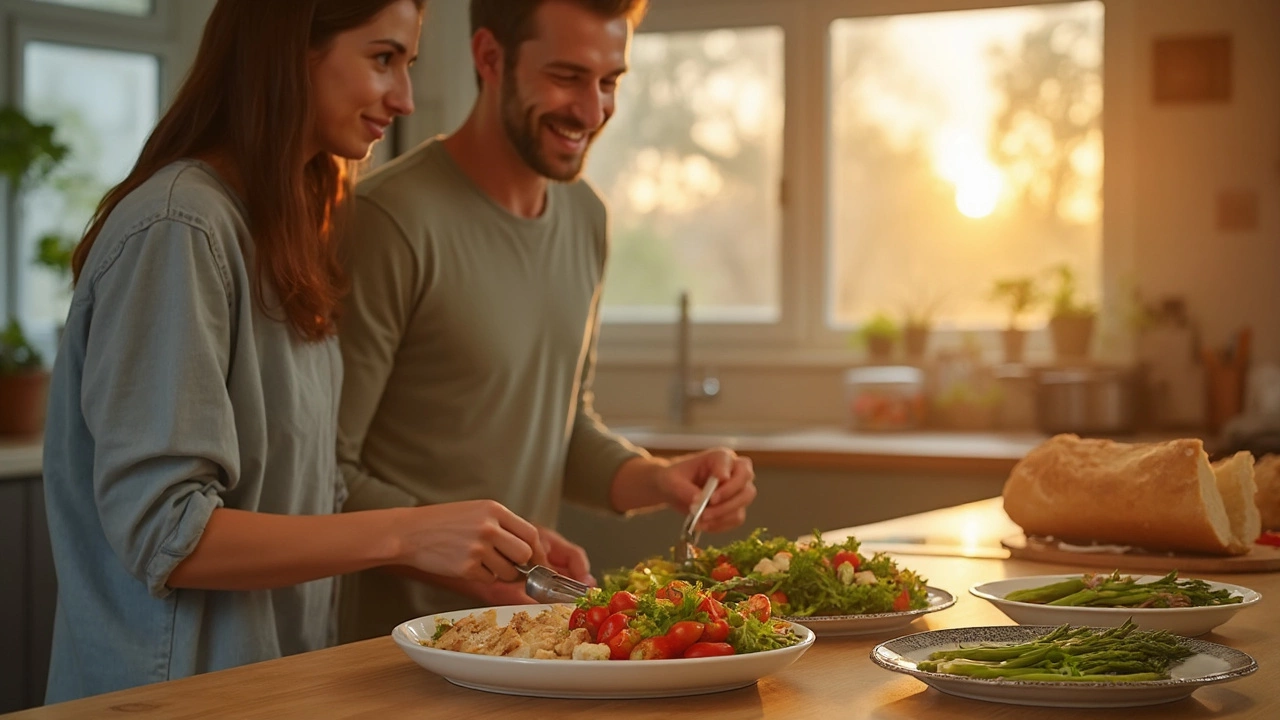

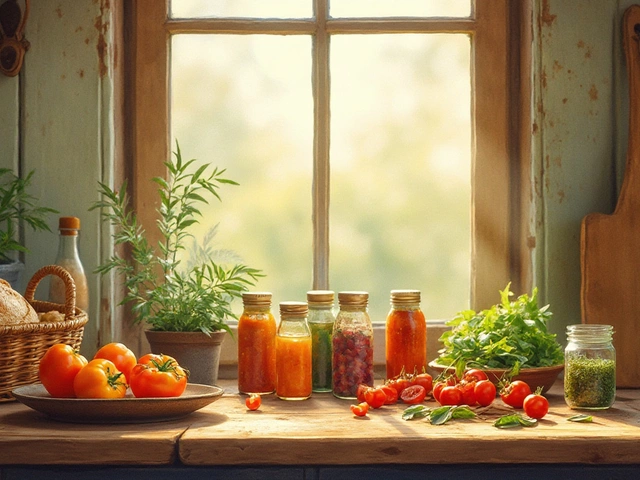
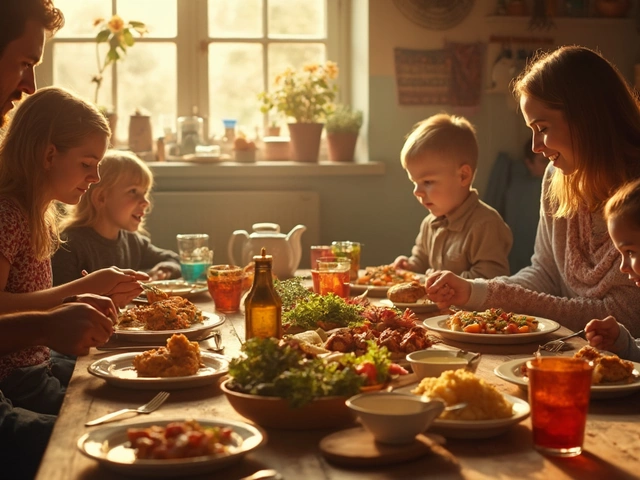
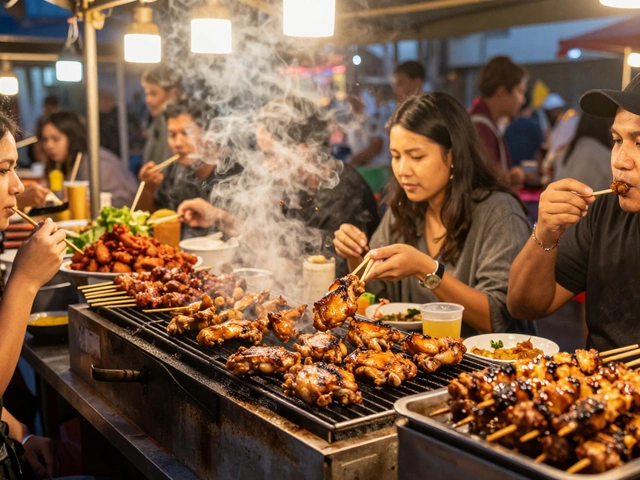
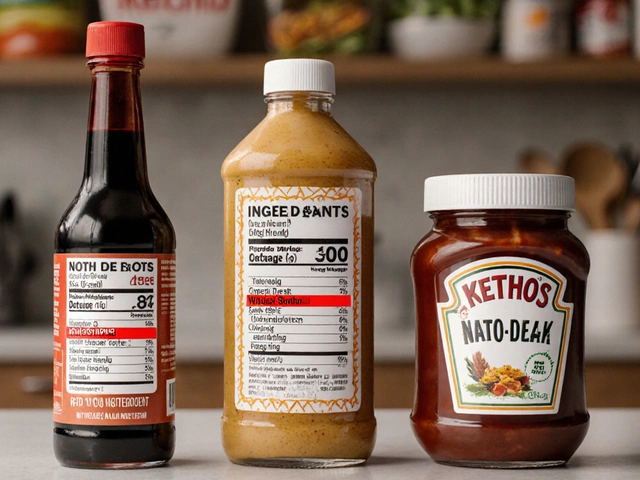
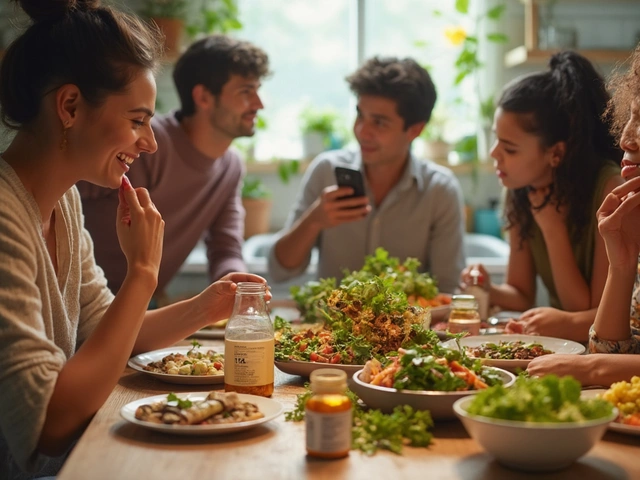
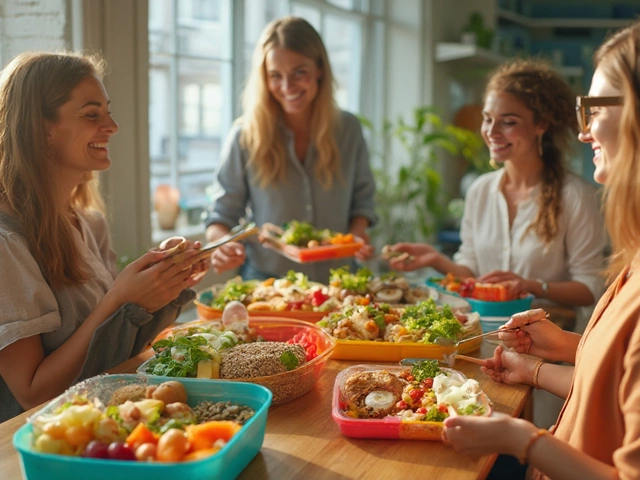
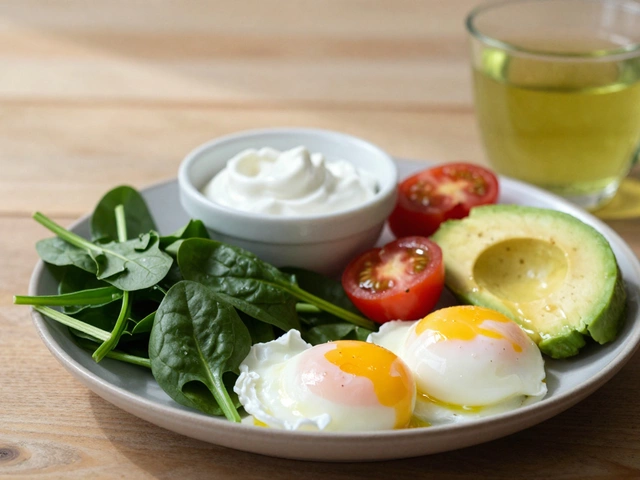
Write a comment